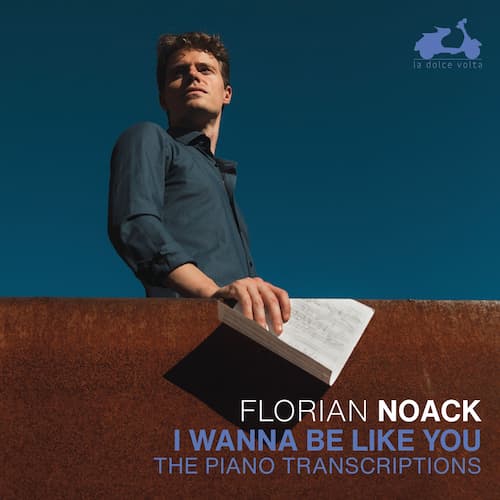In the field of program music, stories from Greek myths are especially popular. French composer Augusta Holmès (1847–1903), was born in Paris, but was not permitted to attend the Paris Conservatoire because she was not a citizen of France (she was naturalised in 1873). Her artistic talent extended not just to music but also to painting and literature. She was a disciple of César Franck but also admired Wagner.
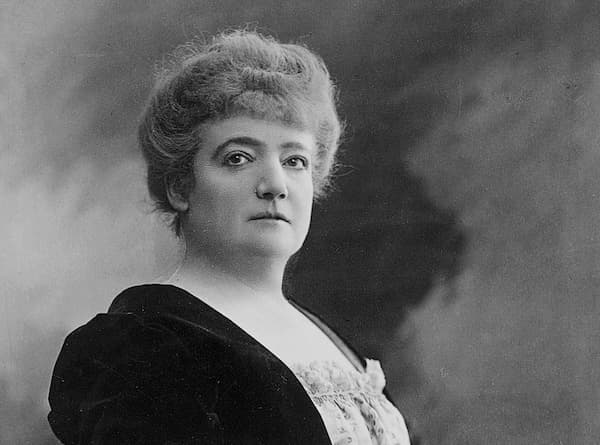
L. Taponier: August Holmès, ca 1990
She wrote her symphonic poem Andromède in 1883, but it was not performed until 1900, due to the perceived style similarities to the now-despised Wagner.
Andromeda was the daughter of Cepheus, king of Ethiopia, and Cassiopeia. Cassiopeia boasting that she and her daughter were more beautiful than the Nereids, the 50 daughters of Poseidon, quickly brought the wrath of Poseidon down on the family. The only way to appease the anger of Poseidon is to give up Andromeda as a human sacrifice. She’s chained to a rock to await her death at the fangs of the sea monster Cetus.
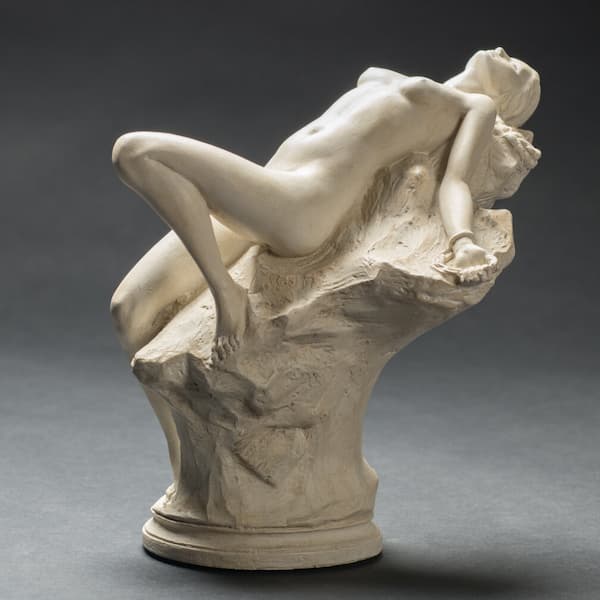
James Chester French: Andromeda, 1931 (photo by Dianne Durante)
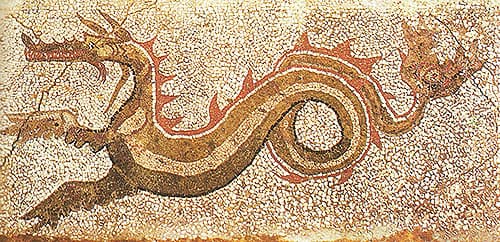
The sea monster Cetus in a mosaic (Reggio Calabria: Museo Nazionale della Magna Greciae)
Luckily, Perseus happens to be passing, having just defeated Medusa. With Medusa’s petrifyingly killer head and a sharpened sword, Perseus defeats Cetus and turns him into stone so he can rescue Andromeda.
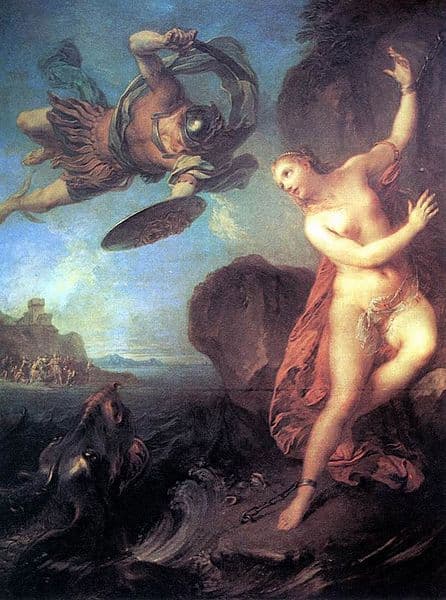
François Lemoyne: Perseus and Andromeda,1723 (London: The Wallace Collection)
In 1882 and 1883, August Holmes wrote 3 symphonic poems, Irlande, Andromède, and Pologne. Irlande and Pologne quickly found their way on symphonic programs by 1883, but Andromède languished until1900. As preparation for writing the work, Holmès wrote a long 11-verse poem in alexandrines. It opens setting the scene:
The Oracle has spoken. The royal victim
White-skinned Andromeda, chained to the briny rock
By the cruel hands of the sea nymphs,
Is sacrificed to the monster of the abyss.
and closes with happiness:
And the hero grasps the maiden, and on the wings
Of Pegasus, carries her off to the distant fields of heaven
Where rays of light and flames of honey
Crown the lovers with eternal brightness
In her choice of writing program music, Holmès joined a long line of French composers (Camille Saint-Saëns, Paul Dukas, and her own teacher César Franck) who used program music to build a new French identity. They were fighting a musical war with Germany, whose advocates of ‘pure music’ despised external props such as stories to support their music.
From its opening with powerful trombone calls over a dark shiver in the cellos, we are plunged immediately onto the cliff with our heroine. The waters clash below her as she awaits her certain death over her mother’s hubris. Tension builds and releases. Finally, Perseus arrives, first on violin tremolos and then with stronger building orchestration, he arrives sounding not unlike a Wagnerian hero. A love theme means our hero and heroine have seen each other and Perseus now has a reason to fight the monster. It ends at the top of the wind and string range as Perseus flies off with his new love.
This track is part of a recording entitled Poétesses symphoniques, which collects together music by 4 composers: Augusta Holmès, Lili Boulanger, Mel Bonis, and Betsy Jolas, all examples of programme music. Programme music, by its nature of storytelling, permitted composers to escape the strictness of classical forms. By using non-musical subjects (a poem, a narrative, a painting, a scene from a play, or a sculpture), composers could exercise their imagination in creating musical scenes. Where Holmés used the Greek myth of Andromeda as her source, the other three composers used Salome, Ophelia, and Cleopatra, all distinctive women of history.
The Orchestre national de Metz Grand Est was founded in 1976. The city is in the northeast corner of France, close to Luxembourg. Their performance is sure and secure under the direction of Belgian conductor and music director David Reiland. He became head of the Metz Orchestra in 2018.

Holmès, Boulanger, Bonis, Jolas: Poétesses Symphoniques
La Dolce Volta: LDV 103
Official Website
For more of the best in classical music, sign up for our E-Newsletter

